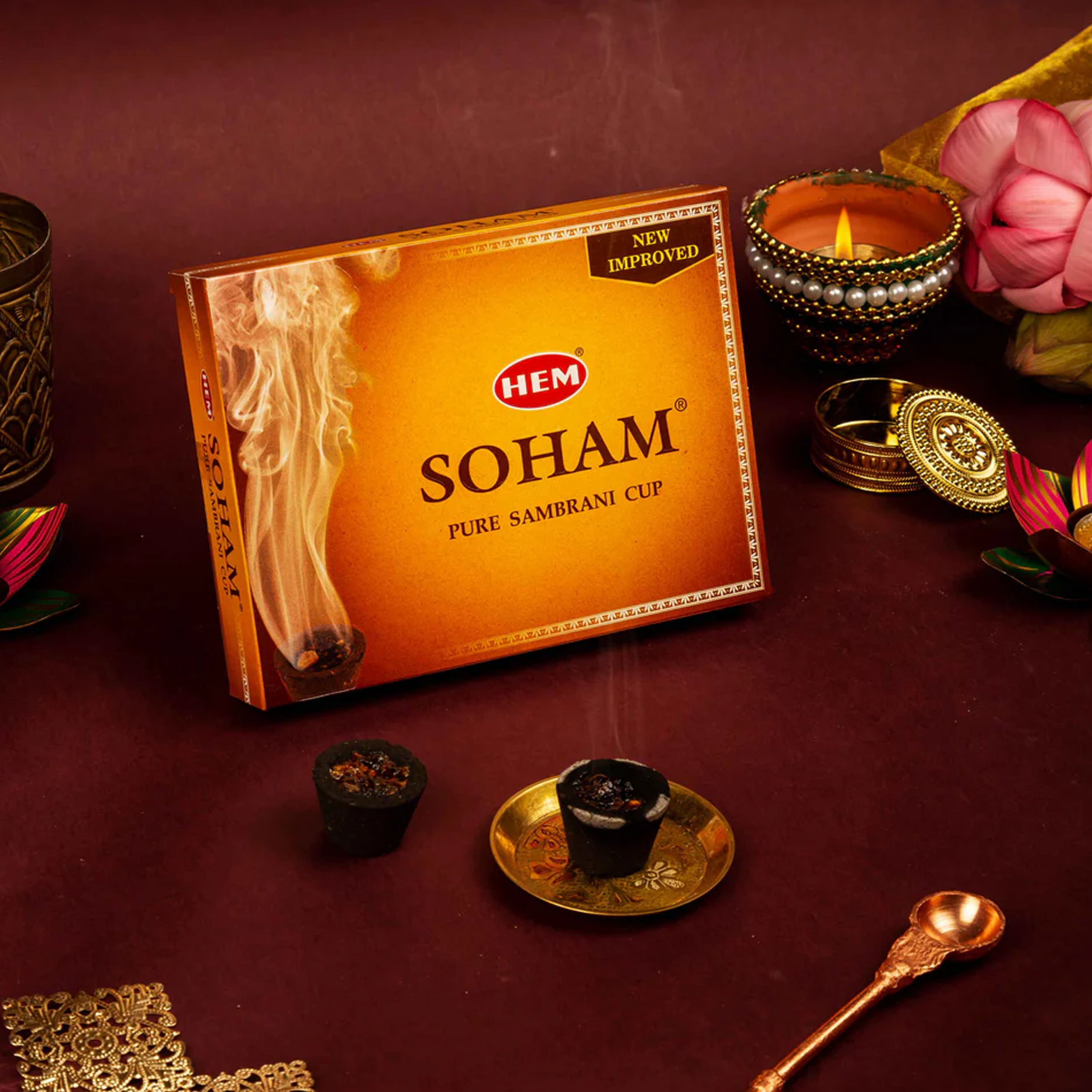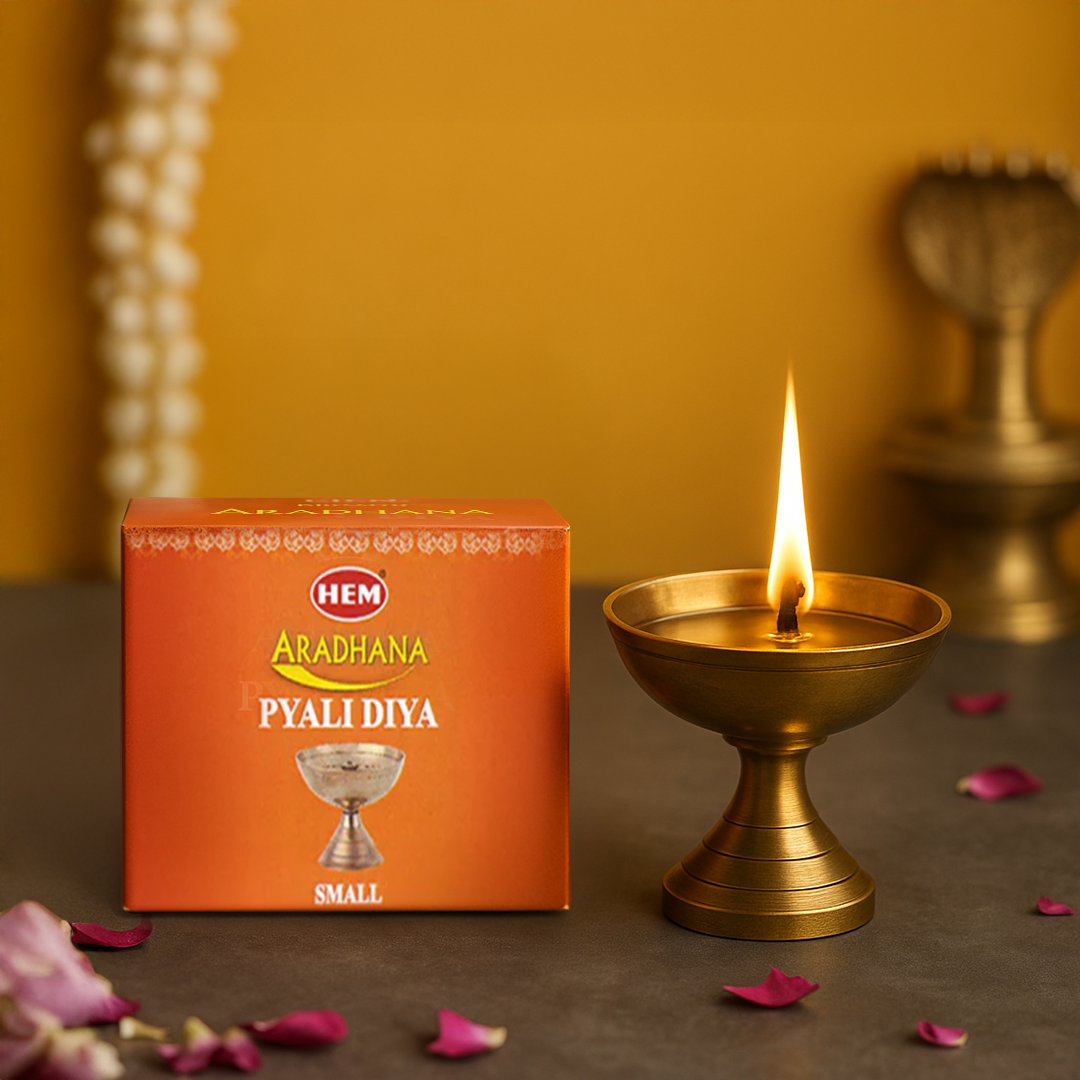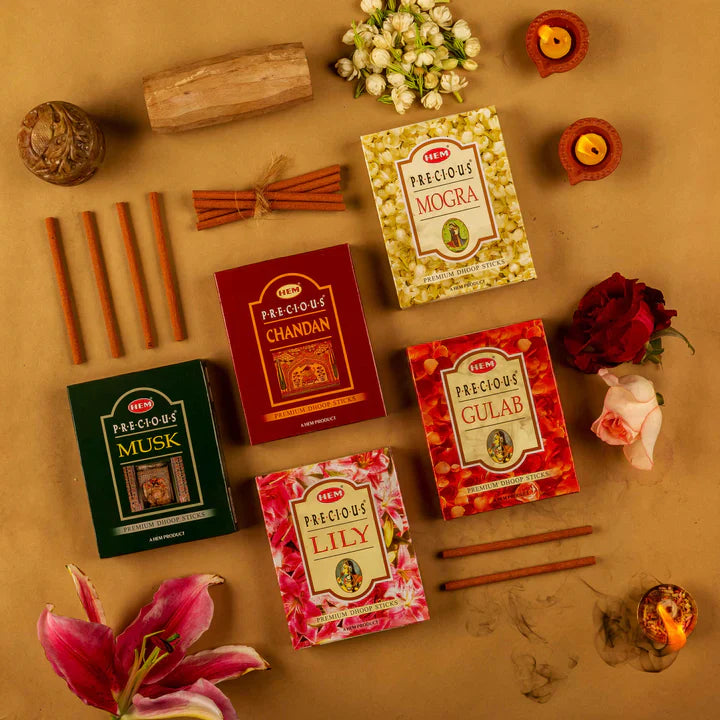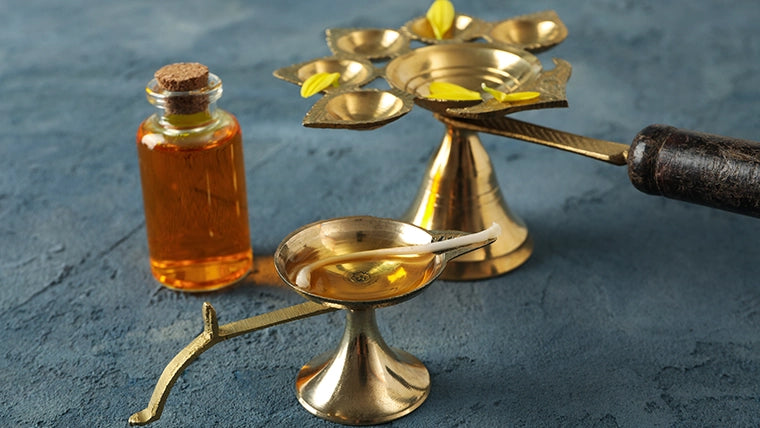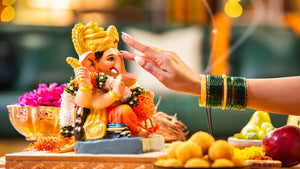If you've ever sat around a campfire, you know that stories told in that setting have a way of resonating deeply. That's the magic of fire: it creates an atmosphere that feels just right, fostering connection and improving communication. This same effect is why lighting an oil lamp holds such significance. More than just a source of light, fire is a symbol of life, warmth, and positivity. When you use oils like sesame or ghee, you amplify this energy, filling your space with a sense of calm and connection. Whether it’s a part of your daily rituals or special ceremonies, lighting an oil lamp is a simple yet profound way to honour tradition and bring a positive aura into your home. It’s about creating an ambience that aligns with your inner strength and the life force that drives us all.
Which Oil is Best for Pooja at Home?
The oil you choose for pooja isn’t just tradition; it adds to the spiritual energy of your space. Here’s a look at the best options and why they’re worth considering.
-
Pure Ghee
Ghee is a popular choice for pooja rituals because of its purity from cow’s milk. It is known for purifying the environment and purging both Manipur and Anahata chakras.
-
Sesame Oil (Til Ka Tel)
For centuries, sesame oil has provided bright lights in Hindu rituals as it burns for a long time. It is famous for protecting one against negativity and bringing stability and prosperity
-
Mustard Oil (Sarson Ka Tel)
Mustard oil is a staple in poojas, especially in North India, renowned for its potent aroma. It’s said to have a strong connection with Goddess Kali and help remove doshas related to Saturn.
-
Castor Oil
While most people may not consider castor oil initially, it has a long burn time and symbolic properties relating to protection and prosperity. Temples often utilize this type of oil during special ceremonies.
-
Olive Oil
Although olive oil is not a customary choice for Hindu rites, it has been gaining popularity among modern-day users due to its clean burn and lack of smoke. The fact that this lamp remains lit over extended periods aligns with the current focus on sustainability thereby making it an ideal choice for contemporary devotees blending their faith with present ideals at large.
-
Coconut Oil
The light scent and steady flame of this oil make it popular among many families in South India. Coconut oil which is equated with Goddess Lakshmi the goddess of wealth brings peace and harmony into the home.
-
Pancha Deepam Oil
Pancha deepam oil is a mixture of five oils, namely sesame or coconut oil, cow ghee, mahua oil, castor oil and neem oil each selected for its own benefits. It is common knowledge that this blend brings health, wealth, and happiness into your house.
-
Jasmine/Chameli Oil
Jasmine oil, or chameli oil, brings a lovely fragrance to your pooja rituals. Its soothing scent is thought to boost positivity and calmness.
Factors to Consider When Choosing Pooja Oil
When choosing an oil for worship, many factors must be considered to ensure that the ritual is performed with the utmost respect and devotion.
- Authenticity and Quality: For the oil chosen for service, purity and quality are paramount. Pure oils, like sesame or ghee, maintain the sanctity of the ritual, making sure that the light and energy of the lamp are undiluted.
- Ease of Access and Tradition: The choice of oil also depends on its availability and adherence to tradition. Oils like mustard and coconut oil are ubiquitous and come from local practices, especially in South Indian households.
- Personal Preferences and Family Traditions: Your personal beliefs and practices play a significant role in selecting the oil. Choose an oil that resonates with your spiritual path.
- Clarity and Freshness: The clarity and freshness of the oil is important for smooth and uninterrupted combustion. Fresh oil produces a bright, clear flame with no smoke or residue.
- Fragrance and Ambiance: The smell of the oil can greatly affect the service atmosphere. The right scent can help set the mood and make the ritual more fun and enjoyable.
- Consistency: The oil's consistency affects the flame's steadiness. Thicker oils like sesame or ghee provide a stable flame, while lighter oils like olive may burn faster.
HEM Aradhna Pooja Til Oil
Hem Aradhana Til Oil is a blend of sesame oil and jasmine oil. The specific blend of sesame oil and jasmine oil is traditionally used for spiritual and ritualistic purposes in various religious practices.

Get the purity and tradition of Hem Aradhana Til Oil in your rituals. Buy now and enjoy its sacred advantages at home.
Importance of Lighting Lamps in Pooja
It is a time-honoured practice to light a lamp before the start of any sacred event or ceremony, making it an integral part of the puja room of every Indian home. By lighting candles, we invite the divine presence and allow the light of the almighty to fill our space. According to Sri Agastya Maharshi's Bhrama Rahasyam, the vibration of the lamp acts as a protective shield, enhancing positive energy and promoting peace and prosperity.
This ritual symbolizes the transition from ignorance to light as light replaces darkness with knowledge. In addition to its symbolic function, the oil used in the lamp ensures a strong flame, touches on spiritual importance, and makes our home cleaner.
FAQs
-
Can I use any cooking oil for pooja?
While cooking oils can be used, traditional choices like sesame oil or ghee were used for their symbolic and aromatic qualities in the earlier days. Today’s options like Dheepam Lamp Oil are commonly emerging as a convenient yet traditional option.
-
Which oil is best for Akhand Diya?
Pure ghee or mustard oil is ideal for Akhand Diya during Navratri.
-
Which oil lamp is used for Lord Shiva?
Til or sesame oil lamps are commonly used in rituals dedicated to Lord Shiva.
-
Which oil is best for Tulsi Pooja?
Cow ghee or sesame oil is recommended for Tulsi pooja.
-
Which oil lamp is used for Lord Hanuman?
Chameli oil is traditionally used for Hanuman puja.
-
Is camphor oil good for pooja?
Camphor is used for Lakshmi or Sri Vidya sadhana and is often added to mustard oil lamps.
-
How often should I change the oil in the pooja lamp?
It's advisable to change the oil daily for freshness and purity.
-
Does the colour of the oil matter?
Yes, certain oils are chosen based on their symbolic colours in cultural practices.

Enhance Your Spiritual Journey: Purity, Fragrance, and Tradition Await with Hem Aradhana Til Oil.

